I am a woman. I am an artist. And I know where my voice belongs.
This week's edition of The 912 highlights "Abbott Elementary" award-winning actress Sheryl Lee Ralph and says goodbye to Raisa Habersham, investigative reporter for The Savannah Morning News and former curator of The 912.
“I am an endangered species/ But I sing no victim’s song/ I am a woman, I am an artist/ And I know where my voice belongs.”
A week plus later and Sheryl Lee Ralph's Emmys speech has still stuck with me. When her name followed the words "And the Emmy goes to...", she became the second Black woman to win outstanding actress in a comedy series after Jackée Harry in 1987. As she lifted the golden statue in the air with a fervor that spoke to her decades of perseverance, waves of gratitude rolled off her.
Her long-awaited flowers had finally been given to her. But what brought me to tears wasn't just seeing a woman I'd watched on TV since I was a child be recognized in an industry she'd worked hard in, but the undying support she spoke of from her costars, family and friends.
Her flowers had long been given to her by those that mattered. Now, the bouquet was just bigger.
— Laura Nwogu, quality of life reporter at the Savannah Morning News
Follow me on Twitter at @lauranwogu_ or email me at LNwogu@gannett.com
Pulse of the 912
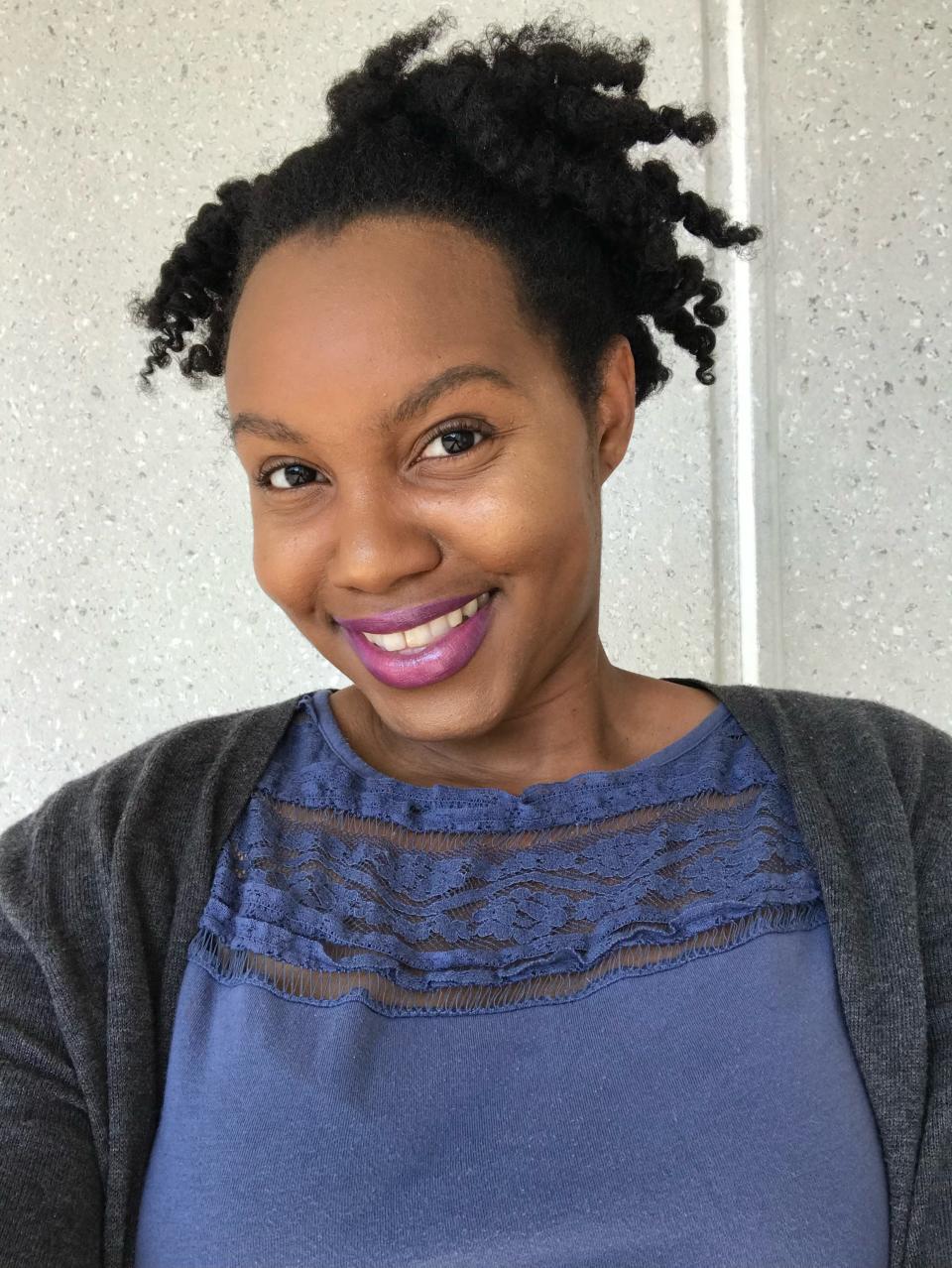
Raisa Habersham will soon be the accountability reporter for The Miami Herald, leaving behind her mark on a city she's embraced and reported on with love and passion. Before we say goodbye, I chat with Raisa about the lessons she's learned in the 912 as she readies herself to embark on her new journey in the 305. But for Raisa, lyrics from Mariah Carey sum up her experience: "We will never say bye."
Laura Nwogu: Coming out of working at the AJC and then freelancing, what made Savannah the perfect next step on your journey?
Raisa Habersham: “You know, that's such a good question because I never factored it in my journey (laughs). Savannah was like the last place I wanted to be professionally and even personally. I've been to Savannah as a child. When I went to Savannah for like a field trip, the first time I went was not bad. The second time was incredibly racist. And so I was like, ‘I don’t want to come back.’ But Rana Cash, the editor at the time, was very convincing even though I had to really think it over.
"But there was really nothing to say no to. It was an opportunity to cover a different city. I got to write for a national outlet, USA Today, by extension. But I think also just the environment was welcoming. The city kind of pulls you in. And when you think about the people who work here, they're amazing people. They're welcoming people. They're helpful people. I tell people all the time, we're a small but mighty staff. We do exceptional work, and we’re great to be around. I think what confirmed my decision was actually getting here and meeting everyone else.”
LN: Yeah, I think I can say the same when I first showed up.
You've written so many impactful stories here. You've won awards. You put a lot of dedication into everything that you've covered. What are some stories or moments that you'll cherish from your time at Savannah Morning News the most?
RH: “I think I always go back to, believe it or not, the story I wrote about the Effingham County students who felt like their school district as a whole was very racist toward them, especially with how they discipline students of color. And that's very bold. I say that because a lot of times in our field, you get people who will say, ‘I'll talk but I don't want to use my name’ or ‘Can we talk off the record?’ Those people — I’m going to say it — annoy me to no avail because they want change, but they don't want change.
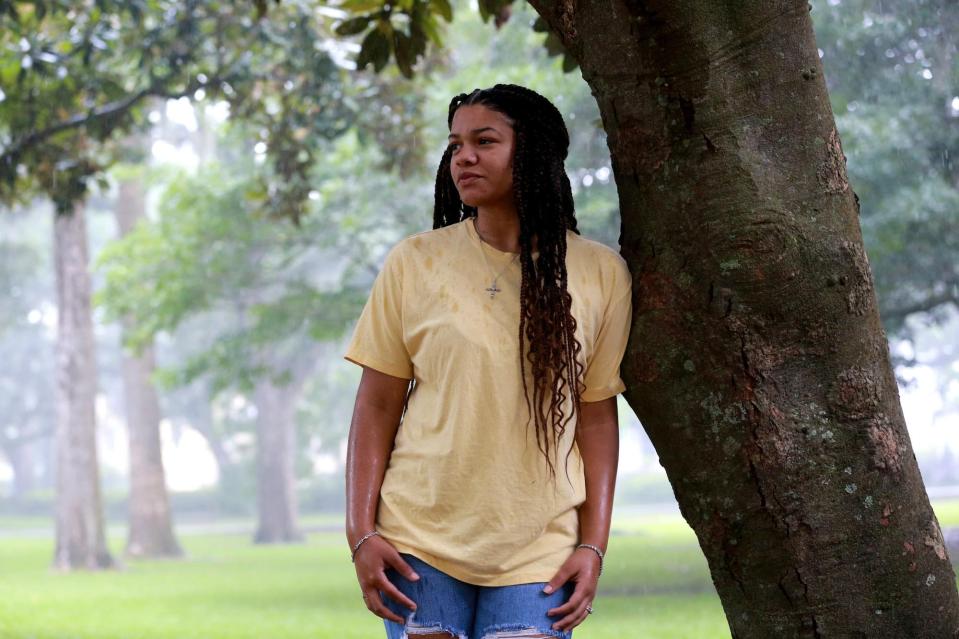
“And you had these students who were fed up; they wanted their voices heard and nobody was listening to them. I explained to them that unless you're in certain particular harm, we have to use your name, and they understood that. I’d spoken with their parents and their parents were very forthcoming with their children as well. I think that will always stay with me just because these were young people who used their voices to talk about a concern that was greater than them. And they've gone off to do great things. So, it's been nice to kind of see where some of them have ended up. That one, in particular, will always stay with me just because they were so gutsy.”
LN: Every new place is like a lesson learned, and you're constantly elevating your career. What are you most excited about in the next part of your journey, especially with the next leg starting in Miami?
RH: (laughs) The food, if I'm being honest. But I think beyond that, just new experiences and learning new cultures. Miami is obviously going to be different from Savannah. It's going to be different from Atlanta. And I think also getting to know my colleagues. That's something that I go into every job worrying about for some reason. Like, will my coworkers like me? That sounds so high school, but you want to enjoy what you do with people you like because you spend most of your time with them. So far, I've gotten some positive reception; people have reached out and have been helpful, so I’m thankful for that.
"But it's different. We're still in a pandemic, and some newspapers don't have office buildings. The Miami Herald doesn't have an office building yet, so it will be a different building community. I'm also looking forward to that as well — how to actually build community.”
LN: Oftentimes the question is, what would you tell your past self, but what do you hope your future self will take away from all that you've learned and done?
RH: “That's such a tough question. I'm a fairly confident person for the most part. And I'm kind of arrogant, so it’s hard to say.”
LN: (laughs) Within reason, though.
RH: “(laughs) Yeah, I can see that. One thing that I always have to tell myself is it'll always get better. I think about growing up in Atlanta. I love Southwest Atlanta. I always rep it, but I remember how hard it was at one point for me and my family. I had to keep telling myself, it will get better, you will get there. Wherever that is for you, you will get there.
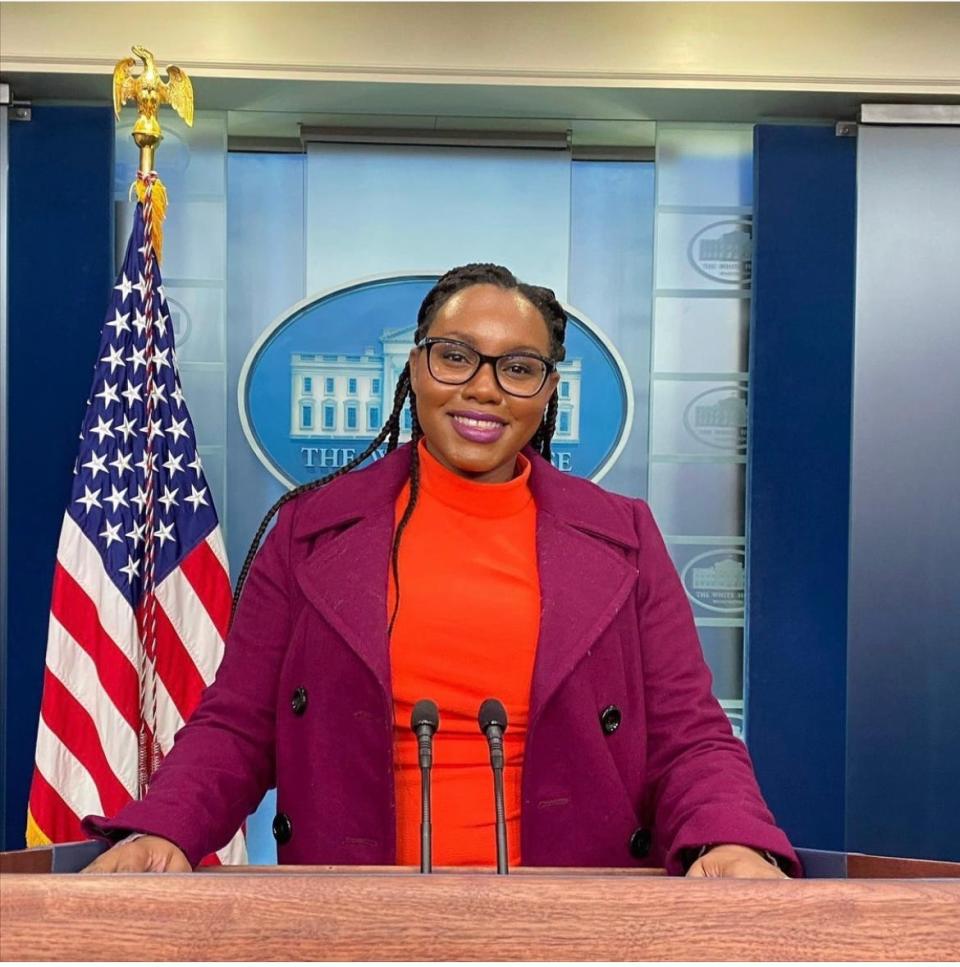
"Thinking back on high school Raisa, it was, OK you're going to graduate, go to college and get that career that you wanted. And what I've learned along the way was that even when you get the career that you want, you're going to want something else or something better, or you may not necessarily be happy and satisfied with it. So I think for me, it's you will get there, but also know that it's okay to change your mind along the way. You may want something different."
LN: As a shoutout to one of your favorite shows, “The Bachelor,” you're standing with a rose in your hand. What's the goodbye speech to Savannah and the Savannah Morning News sounding like?
RH: “(laughs) Oh my gosh. It’s so hard to say because I see myself visiting Savannah again, so it's kind of hard to look at it as a final goodbye. I don’t like to say goodbye to certain things; that’s so tough for me. I guess it would have to be to my husband, first. I mean, he's been so supportive throughout everything that I've done. He's known I want to be a journalist since we met, so I'm just always thankful for his support.
“To the staff: keep going. People are shaken up. People are terrified, in some ways, by the work that we do, and that's a good thing. They should be concerned. They should know that people are paying attention and watching. People like to take advantage of us. ‘Us’ being journalists, but also ‘us’ being a small Savannah Morning News newsroom, and that's not fair. But we always managed to get the story and get it right. We will always aim for the best.
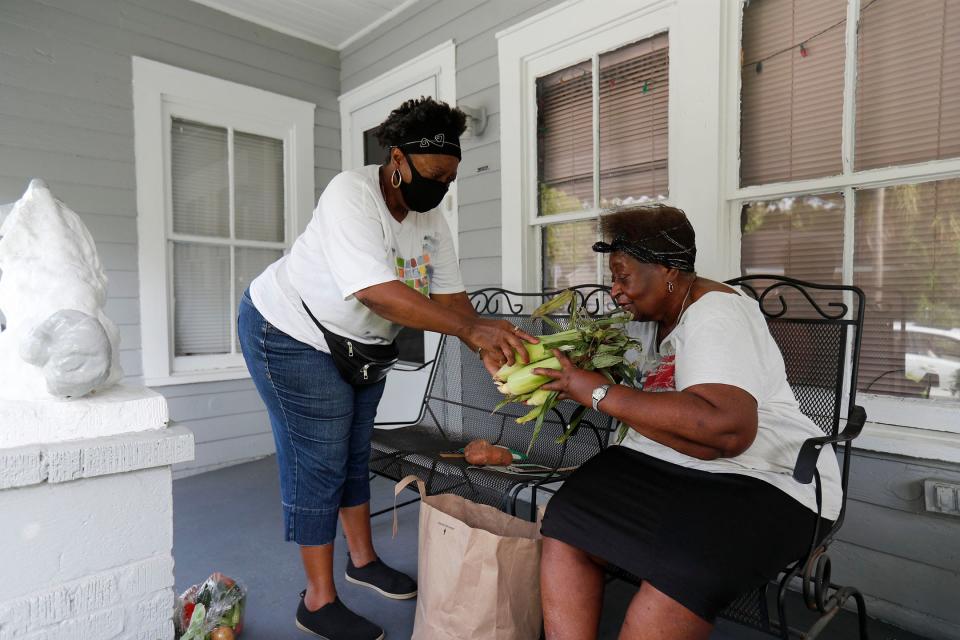
"To the Savannah community — It's so diverse, but I know that there are pockets of Savannah that are fighting for better, and I say keep fighting. It's not common for journalists to be biased, but part of the reason that you do what you do is because you want systems to get better, and I want systems to get better. I know that there are people out there who are advocating on behalf of themselves and on behalf of others, for Savannah and Chatham County as a whole, to improve, and it's not going to happen with them not exercising the opportunity to address their concerns and say what's going on. So I say keep fighting, and I think that, eventually, the city will get there."
LN: And you know the final question: Why do you love the 912?
RH: “My goodness. Well, I've got two different answers, so I'll start with the newsletter. I think what I've loved is that we've been able to highlight Black culture in Savannah in very good ways. Very beautiful ways. I think a lot of times, people look at Blackness as homogenous. They really think of us as a monolith, and that's just not the case. There are so many other vibrant, beautiful things that we're doing that if people took the time to actually care, they’d learn more and experience more of our beauty. So, I think that's why I particularly love our newsletter. And you know, it's inspired some other people to do some newsletters, and I think that's a great thing. If there’s one thing I’d want to continue after I left, it is The 912. I think it’s been a very pivotal newsletter.
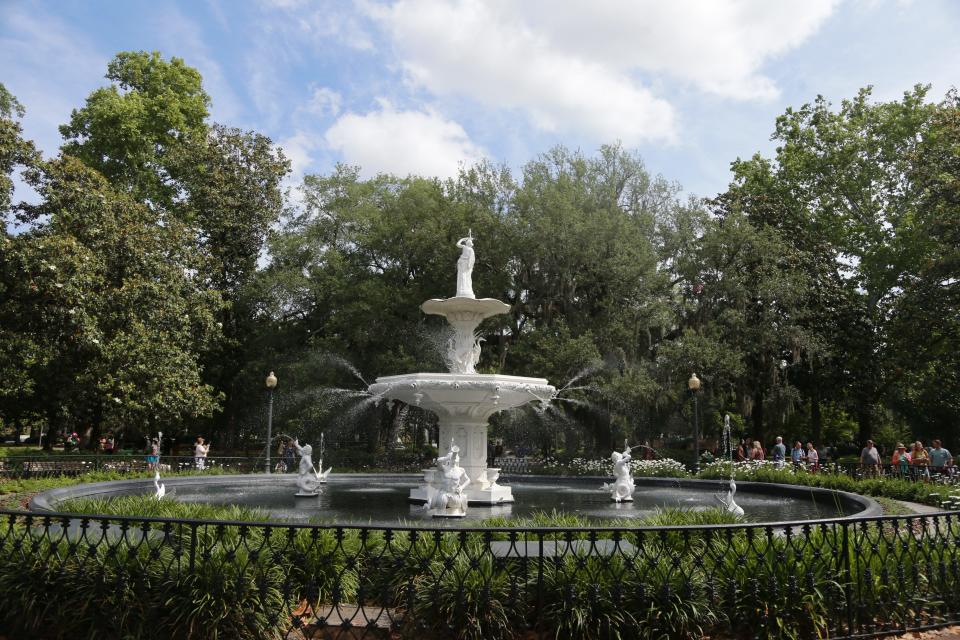
“As far as the 912 at large — Savannah itself — awww, man. I think I like how slow it is. That sounds so weird to say; I’m a city girl from Atlanta. But Savannah has a slowness to it that kind of draws you in. I love that it's a walkable city. I was telling someone yesterday that I'm going to miss the fact that there's open container; they don't have that in Miami. I love it for the fact that initially when I came here, it didn't seem like a city that was trying to be something that it wasn't. I felt slightly different now, but I think that it does a good job of trying to preserve the parts of it that are beautiful, so I do hope that it continues to hold on to that beauty.”
This interview was edited for length and clarity.
Art of The 912
The 912 newsletter will highlight a local Black artist every two months as the header image for the weekly issue. This month's artist is Patrice Jackson.
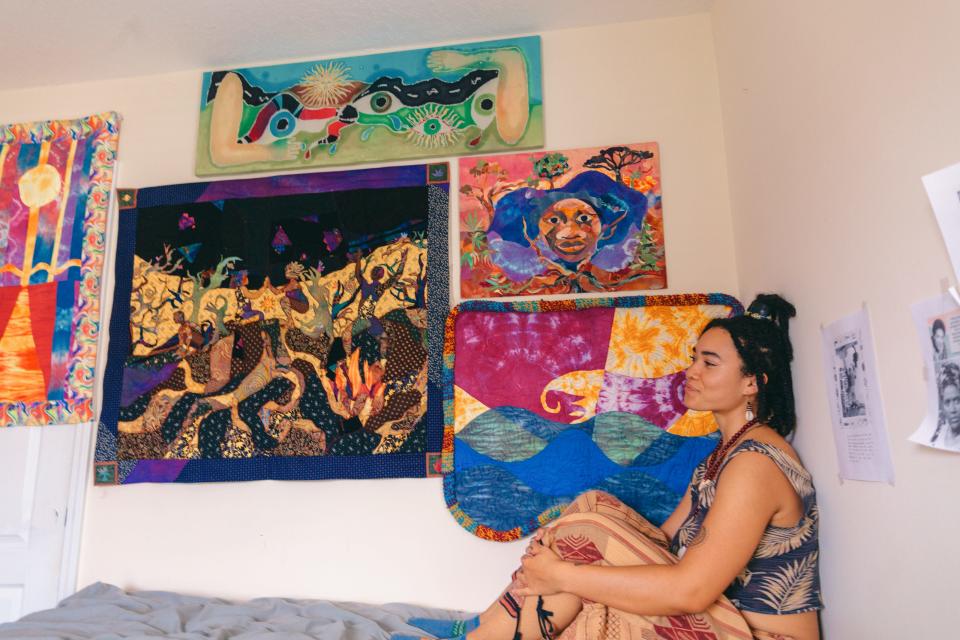
Follow Jackson on her website and Instagram:
Website: patricejacksonart.wordpress.com
Instagram: @rooted_art.by_patrice
This article originally appeared on Savannah Morning News: The 912: I am a woman. I am an artist. And I know where my voice belongs.

